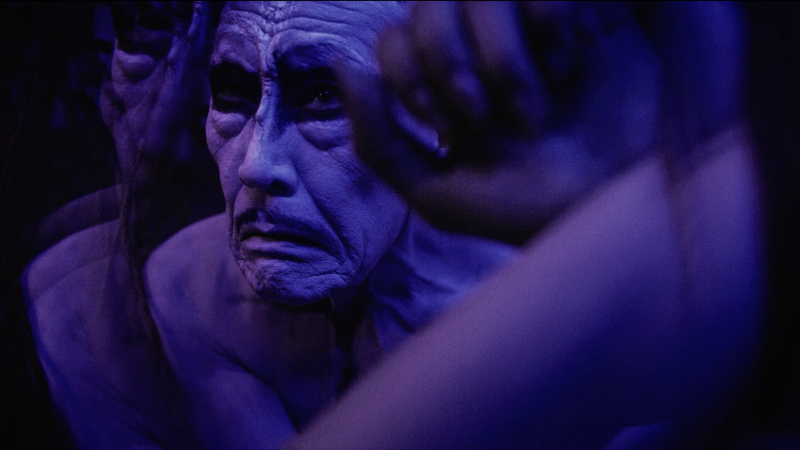In the fourth feature by the Canadian filmmaking collective, Road Kill Superstars (RKSS), François Simard, Anouk Whissell, and Yoann-Karl Whissell, a group of Gen Z activists sneak into a home superstore before closing. They plan to make a political statement against the company’s active role in deforestation by vandalising the store and posting protest videos to social media. Their plan, however, hits a problem when they encounter Kevin (Turlough Convery), a security guard keen to reconnect with his primitive side. He sees them as prey on his hunting ground and when the hunt begins, the activists must survive the night.
Wake Up is the type of film that encourages its audience to kick back and enjoy as all hell breaks loose. Borrowing the popular phrase, it does exactly what it says on the tin, it’s a rollicking 80 minutes of fun – for us, not the unfortunate characters fighting for their lives. However, it lacks the guttural punch of other survivalist films like John Carpenter’s classic, Assault on Precinct 13 (1976), Kinji Fukasaku’s Battle Royale (2000) and Tyler Gillett and Matt Bettinelli-Olpin’s Ready or Not (2019).
While some may salivate for more excessive violence, the hunt and the kills are entertaining and creative enough. The main qualm will be that the characters’ motivations and interpersonal dynamics are underdeveloped. RKSS, working from a screenplay by Alberto Marini, does the minimum necessary. They introduce a potential romantic motivation for new recruit Tyler (Kyle Scudder), and Ethan’s (Benny O. Arthur) distrust of him, as well as one activist talking about how stores like this put her father out of business. This contrasts with other survivalist films that take time to develop the interpersonal dynamics of its characters, their pasts and motivations. It’s a decision that’s not to Wake Up’s detriment, because it can be enjoyed as a breezier take on this type of story that’s crossed with the slasher.
Wake Up also leans into the archetypal story of the man who has reached breaking point, calls to mind Joel Schumacher’s Falling Down (1993). The construction of cause and effect in pitting the activists against Kevin, may also be a nod to Frankenstein, and the traditions of the sympathetic horror monster.
RKSS and Marini refuse to emphasise the environmental activism angle and enter the timely and contentious conversation about what’s an appropriate form or way to protest. There’s a version of Wake Up that’s more consciously engaged with these social anxieties that would certainly elevate its presence. The filmmakers, however, slip in metaphors that may be missed in favour of the film’s orgy of violence. An effective touch is how the activists who are being killed off one-by-one wear animal masks, metaphorically becoming the thing they’re advocating for and are trying to protect. In the aftermath, we’re reminded of how the engines of commerce and industry continue to endure, despite righteous indignation from the conscionable.
Wake Up continues RKSS’ rebellious affront towards authority. From the orphaned teen’s battle with the older and ruthless warlord and heroics to save the girl in Turbo Kid (2015), to teen Davey spying on his neighbour, a police officer, who he suspects of murder in Summer of 84 (2018), and three young slackers against a corporation in We Are Zombies (2023), RKSS have stacked their films with young characters standing up to the status quo. They challenge authority and institutions of power in an effort to empower themselves.
RKSS are drawn to stories where the young and innocent step out into the adult world, where they try to become heroes of their own stories. These films appeal to the audience’s inner child. They are offering a nostalgic reconnection with not only youthful imagination and desire to grow up, but also the types of films prevalent in the 80s and 90s that tapped into this sense of being. RKSS’ films convey this sense of fun with heavier undertones, where innocence is in peril. All the time, they’re moving between diverse settings, from an apocalyptic world to suburbia and now a deserted home superstore.
Wake Up screened as part of FrightFest at the 2024 Glasgow Film Festival.









